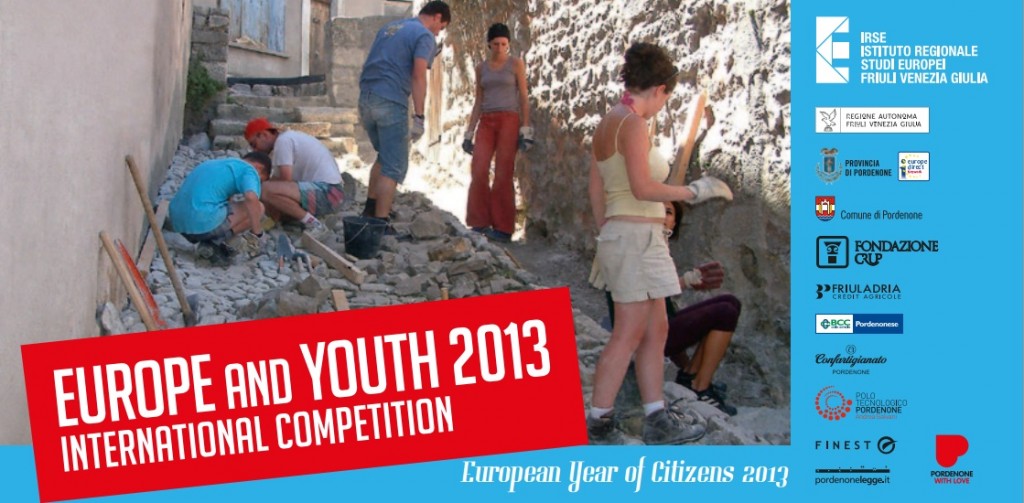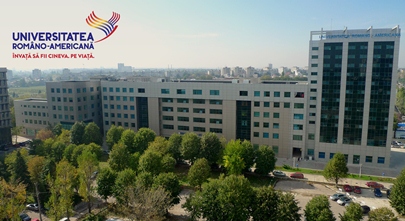Centrul de Studii ?i Documentare European? din cadrul Universit??ii Româno-Americane invit? studen?ii universit??ii s? se înscrie la competi?ia interna?ional? “Europe and Youth 2013“.
The “Europe and Youth 2013” competition is open to students in Universities and Schools of all levels throughout all the regions of Italy and the European Union.
SPECIAL PRIZES of 500 Euros for the best paper in each of the ten proposed themes. Other prizes of 300 and 200 Euros. N.B. The titles proposed for university students, recent graduates, and those who are not more than twenty-six years old on the deadline, 25 March, 2013, must not exceed a total of 20,000 spaces, unless otherwise specified. Works accompanied by a summary in English (not more than 1500 spaces), and a short (maximum: 2 minutes) video presentation in English by the author, will receive extra attention in the awarding of prizes.
CHOOSE ONE OF THE FOLLOWING THEMES:
1. Erasmus for all. The European Commission has announced its new programmes for culture and education: 2014-2020. “Erasmus for all” and “Creative Europe” group together and unify the seven programmes currently active. Collect information and using interviews, write a report on several specific projects that are being activated by associations, institutes and youth groups in your area.
2. Landscape, Constitution and Cement. Salvatore Settis, archeologist and art historian, launches an appeal to consider our landscapes and cultural patrimony as common resources. A strategic choice to “educate towards beauty”. Analyse legislation and functioning projects in other European countries.
3. Startup. Are Startup programmes necessary to stimulate employment?
Examine the recent statute of the Ministry of Economic Development, and the document “Restart Italy”, and reflect on the different types of other European experiences. Interview young startuppers in your territory and underline the objectives, benefits and difficulties they have experimented.
4. Europe as antidote. The Nobel Peace Prize awarded to the European Union can be seen as recognition for the past, strict warning for the present and encouragement to do better, so that Europe can return to its role of bulwark against any populist and anti-democratic leanings. Using this declaration by Emma Bonino for your analysis, study and write about growing populism and xenophobia in one or more European countries.
5. Non-places. The French anthropologist Marc Augé has given particular attention to places of transience, “non-places”, those areas where people meet without real contact. Report on Italian and European experiences and projects aimed at enlivening and stimulating participation in the use of urban spaces.
6. The end of the world? In this book La fine del mondo. Guida per apocalittici perplessi, Telmo Pievani, philosopher and scientist, introduces an interesting journey to describe how every culture has ineffectually predicted its end, and we ourselves are the children of others’ catastrophes. Science teaches us that unpredictable cataclysms can reopen the ”evolutionary game”. After collecting information, write a newspaper article of no more than 10.000 letters.
7. Women in administration. Microcredit for women has been defined as a true social revolution, key to the development of many countries in the southern hemisphere. In northern Europe many women hold important positions in economy and in public administration. After research, describe different experiences and compare them with the situation in your country.
8. Balkan “contamination”. Study some of the works of the mitteleuropean intellectual Dzevad Karahasan, one of the most influential writers of the Balkan area, representative of the contemporary literary movement of “contamination”.
9. Young agriculturists grow up. Recent data shows new interest and real chances of employment for young people in the agro industrial sector, in agriculture, and in green tourism. Study your territory and take into consideration the proposals that emerged from Il Salone del gusto/Terramadre and which were presented to the European Commission, which is defining the New Common Agricultural Policy.
10. The quest for truth. In his novels, the Spanish author Javier Cercas studies the unresolved problems of his country’s past, an obsessive quest for truth that reflects on the value of the ethics of memory. After reading one or more works by this author, who will be protagonist of the Festival Dedica 2013 (Pordenone 9-23 March 2013), express your thoughts and feelings.
RULES:
The works can be written in Italian or in another mother-tongue language. Each participant or group of participants can submit a single work only. The works submitted (two copies for written works, single copy for video presentations) must reach the IRSE offices (Via Concordia, 7 – 33170 Pordenone – Italy) before the deadline of 25 March 2013.
They will be accompanied by a typewritten form, giving the following information about the contestant: name, surname, telephone, address (street, city, postal code and email address), date and place of birth, specification of school class or university course of study, name and complete address of School or University, name of teacher or teachers who assisted.
Obligatory: each work must be accompanied by a bibliography of works consulted and/or by a list of web sites consulted. All participating works become the property of IRSE, and will be divulged through its publications and various projects.
Application Deadline: 25th March 2013
The works submitted (two copies for written works, single copy for video presentations) must reach the IRSE offices (Via Concordia, 7 – 33170 Pordenone – Italy).
- Tel.: +39 0434 365326
- Fax: +39 0434 364584
- E-mail: [email protected]
REMEMBER:
Write on your work “Information thanks to Europe Direct of Pordenone”


